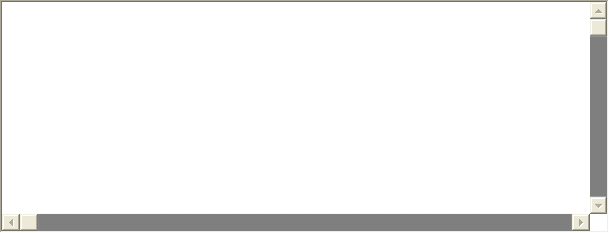ATTACHMENT H: PESP Strategy-Progress Reporting Form_Non-Commercial Non-Residential Pest Control Services_EPA Form No 9600-01
2415ss02_AttachE_Form 9600-01.docx
Pesticide Environmental Stewardship Program Annual Measures Reporting
ATTACHMENT H: PESP Strategy-Progress Reporting Form_Non-Commercial Non-Residential Pest Control Services_EPA Form No 9600-01
OMB: 2070-0188
Attachment E: PESP Strategy/Reporting Form for All Members Except Those That Provide Commercial/Residential Pest Control Services
Note: The form below is a reproduction of a form that was developed for online use.
Paperwork Reduction Act Notice: This form is multi-purposed. It is used to report a five-year PESP Strategy and to submit annual reports.
The paperwork burden to prepare and submit the PESP strategy is 10 hours every five years for both new and current members of the program. The paperwork burden for the annual progress reports vary by type of member, and are estimated to be 25 hours for IPM Promoters, 100 hours for IPM Users (those that maintain locally), and 300 hours for National IPM Users (those that maintain data in multiple locations nationally). The burden estimates include time for reading the instructions, gathering and maintaining information, and completing the form.
Responses to this collection of information are necessary in order to participate in the voluntary program. An agency may not conduct or sponsor, and a person is not required to respond to a collection of information unless it displays a valid OMB control number. Send comments regarding the burden estimate or any other aspect of this collection of information, including suggestions for reducing the burden, to the Director, Collection Strategies Division (2822T), U.S. Environmental Protection Agency, Washington, DC 20460; and to OMB, addressed to Desk Officer for EPA, via email to [email protected]. Do not send completed forms to these addresses.
This form is for use by all PESP members except those that provide commercial/residential pest control services.
Resume
Later
Your
Email:
Please use the form below to report progress toward achieving your 5-year performance goals and objectives as outlined in your current PESP strategy. Please note that information provided should reflect the current reporting period of Month/Day/Year to Month/Day/Year. Proprietary information you report will only be used in aggregate (i.e. not attributable to your company) in public reports and on the PESP website. If needed, you may save your report by checking the box above and return later to complete it. Please contact us at pesp.info(at)epa.gov if you have any questions or problems with this form. Thank you again for your continued commitment to environmental stewardship! * = Required
Enter
whole numbers only, without commas. Submitter Details
Company/Organization
Name *
(Enter your company/organization name precisely as it appears in the PESP Member reporting instructions letter received from EPA)
Submitter
E-mail
*
(Enter the email address of the person at your company/organization that we should follow up with should we have questions regarding this report)
Which
Member Group(s) and/or Industry do you belong to? (Check as many
as apply) *
(Refer to the PESP Member reporting instructions letter received from EPA for guidance)
Organizational Profile Measures
1.
Total Acres (exterior grounds) under Management *
(TOTAL acres (exterior grounds) actively under the company/organization's management/ jurisdiction as of the END of the reporting period)
2.
Total Square Feet (interior space) within Buildings/Schools under
Management *
(TOTAL square feet (interior space) within the buildings/schools actively under the company/ organization's management/jurisdiction as of the END of the reporting period)
3.
Total Buildings/Schools under Management *
(TOTAL number of buildings/schools actively under the company/organization's management/ jurisdiction as of the END of the reporting period)
4.
Total People in Buildings/Schools under Management *
(TOTAL number of people (employees, students, residents, etc.) in the buildings/schools/accounts actively under the company/organization's management/jurisdiction as of the END of the reporting period)
5.
Total Employees/Members *
(Companies: TOTAL number of employees as of the END of the reporting period. Associations: TOTAL number of members as of the END of the reporting period.)
IPM Implementation and Adoption
IPM
Adoption: Progress and Challenges *
(All Members: Describe progress made and challenges experienced during the reporting period toward achieving your 5-year goals related to implementing risk reduction practices. Gold Members: Note any lessons learned. (Maximum length: 20,000 characters))
Measures Reporting - IPM Implementation and Adoption
1.
Total Acres (exterior grounds) under IPM *
(TOTAL acres (exterior grounds) under the company/organization's management/jurisdiction at which IPM is practiced as of the END of the reporting period)
2.
Total Square Feet (interior space) within
Buildings/Schools/Accounts under IPM *
(TOTAL square feet (interior space) within the buildings/schools/accounts under the company/organization's management/jurisdiction in which IPM is practiced as of the END of the reporting period)
3.
Total Buildings/Schools under IPM *
(TOTAL number of buildings/schools under the company/organization's management/jurisdiction in which IPM is practiced as of the END of the reporting period)
4.
Total People Impacted by IPM *
(TOTAL number of people impacted by the implementation of IPM in buildings/schools/accounts under the company/organization's management/jurisdiction during the reporting period. NOTE: It is not necessary that people were impacted during the entire reporting period to be counted here.)
4a.
Total Children Impacted by IPM *
(TOTAL number of children (Ages 0-18) impacted by the implementation of IPM in schools/facilities under the company/organization's management/jurisdiction during the reporting period. NOTE: It is not necessary that children were impacted during the entire reporting period to be counted here.)
IPM Practice Details
1a.
Formal IPM policy adopted or in place? *
(During the reporting period, did the company/organization adopt or have a formal IPM policy in place?)
1b.
IPM plan enacted or in place? *
(During the reporting period, did the company/organization enact or have an IPM plan in place?)
1c.
IPM coordinator appointed or active? *
(During the reporting period, did the company/organization appoint or have an active IPM Coordinator?)
1d.
IPM committee appointed or active? *
(During the reporting period, did the company/organization appoint or have an active IPM Committee?)
2.
ALL employees aware of IPM?
*
(During the reporting period, were ALL employees of the company/organization aware of the company/organization's IPM policy and/or plan as well as the general concept of IPM?)
Please note that IPM practices for the entire reporting period at ALL areas under the company/organization's management/jurisdiction should be reflected when responding to the questions below:
3.
ALWAYS utilize pest monitoring and action thresholds? *
(During the reporting period, did the company/organization ALWAYS utilize pest monitoring and action thresholds at ALL areas under management?)
4.
ALWAYS identify pests before ANY treatment? *
(During the reporting period, did the company/organization ALWAYS identify pests before ANY treatment at ALL areas under management?)
5.
Pest-proofing inspections ROUTINELY conducted?
(During the reporting period, did the company/organization routinely conduct pest-proofing inspections at ALL areas under management?)
6.
ALWAYS focus on identifying and resolving root cause of pest
problem? *
(During the reporting period, did the company/organization ALWAYS focus on identifying and resolving the root cause of the pest problem at ALL areas under management?)
7.
ALWAYS utilize pest monitoring and action thresholds? *
(During the reporting period, did the company/organization ALWAYS utilize pest monitoring and action thresholds at ALL areas under management?)
8.
Formal sanitation/housekeeping protocols in place?
(During the reporting period, did the company/organization have formal sanitation/housekeeping protocols in place at ALL areas under management?)
Pesticide Risk Reduction and Usage
Pesticide
Risk Reduction and Usage: Progress and Challenges *
(All Members: Describe progress made and challenges experienced during the reporting period toward achieving your 5-year goals related to pesticide risk reduction and usage. Gold Members: Note any lessons learned. (Maximum length: 20,000 characters))
Measures Reporting – Pesticide Risk Reduction and Usage
Total Amount of Pesticide Applied (or Purchased only if application data are not available) - Provide for each pesticide used
Are
you reporting pesticide Applied
Economic Benefits
Economic
Benefits: Progress and Challenges
(This measure category is an area that we are currently exploring for possible future reporting. Though reporting in this measure category is not required, we would appreciate any qualitative or quantitative information you are able to provide as well as feedback on appropriate measures. (Maximum length: 20,000 characters))
IPM/PESP Education and Promotion
IPM
Education: Progress and Challenges *
(All Members: Describe progress made and challenges experienced during the reporting period toward achieving your 5-year goals related to training your employees to provide services that reduce risks to human health and the environment. Gold Members: Note any lessons learned. (Maximum length: 20,000 characters))
Measures Reporting - IPM/PESP Education and Promotion
1.
Total Employees/Members Receiving IPM Training *
(TOTAL number of company/organization employees/members receiving any amount of internally and/or externally-provided IPM training during the reporting period. NOTE: Associations report here only on number of members.)
2.
Total Employee/Member IPM Training Hours Logged *
TOTAL number of IPM-related training hours logged by company/organization employees/members during the reporting period. NOTE: Associations report here only on training hours logged by members.
3.
Total Employee/Member IPM Trainings Provided *
(TOTAL number of internal IPM training workshops, seminars, etc. provided for employees/members during the reporting period by the company/organization. NOTE: Associations report here only on trainings provided for members.)
4.
Total External IPM Trainings/Educational Events *
(TOTAL number of IPM trainings, workshops, webinars, etc. provided by the company/organization during the reporting period for people external to the company/organization (customers, non-members, etc.) NOTE: Sole-sponsorship is not required, but company/organization should have had a substantive role in the event to be counted here.)
5.
Total People Reached by IPM Training/Educational Events *
(TOTAL number of people external to the company/organization (customers, non-members, etc.) reached by IPM trainings and educational events provided by the company/organization during the reporting period. NOTE: Sole-sponsorship is not required, but company/organization should have had a substantive role in the event to be counted here.)
6.
Total Schools Including IPM Education in Curricula
(TOTAL number of schools under your company/organization's management/jurisdiction which include IPM education in the students' curricula as of the END of the reporting period)
7.
Total Certified Pesticide Applicators on Staff *
(TOTAL number of certified pesticide applicators on the company/organization's staff as of the END of the reporting period.)
8.
Total Field Demonstrations Involving Biopesticides and/or IPM
Practices
Additional Report Information
Notes
and Comments
(If needed, provide any additional notes or comments related to your report which is not already captured. (Maximum length: 10,000 characters))
If you would like to upload a file with your report, you may do so here: After clicking on the "submit report" button below, you will have an opportunity on the next screen to review your information and make any corrections. You will also have an opportunity print or save a copy of your report - we strongly recommend that you do so. You will receive a confirmation email from EPA immediately upon receipt of your report. If you have any questions or concerns, please contact us at pesp.info(at)epa.gov I affirm that all information provided in this report is truthful to the best of my knowledge. I understand that the information provided may be subject to third-party verification.
OMB Control No. 2070-XXXX EPA Form No. 9600-01 Approval Expires XX-XX-XXXX |
| File Type | application/vnd.openxmlformats-officedocument.wordprocessingml.document |
| Author | Amaris Johnson |
| File Modified | 0000-00-00 |
| File Created | 2021-01-28 |
© 2026 OMB.report | Privacy Policy




